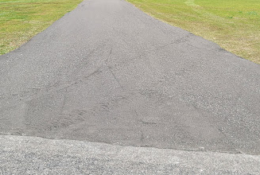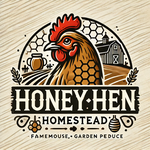
When building your off-grid paradise, selecting the right driveway is crucial to ensure easy access, functionality, and sustainability. Your driveway is not just a path to your home; it’s a long-term investment in your property’s infrastructure. Whether you’re navigating rural landscapes, harsh weather conditions, or environmental considerations, choosing the right driveway involves weighing various factors.
In this article, we’ll explore several driveway options that are suitable for off-grid living, examining the pros and cons of each to help you decide which solution is ideal for your remote homestead.
1. Gravel Driveway: Affordable and Practical
Gravel driveways are one of the most popular choices for off-grid properties due to their affordability and ease of installation. They offer a simple yet effective solution for rural environments.
Pros:
- Affordability: Gravel driveways are relatively inexpensive to install, making them a great option for off-grid homeowners working with a tight budget.
- Easy Maintenance: Gravel driveways are easy to maintain with simple repairs and periodic regrading.
- Good Drainage: The porous nature of gravel allows for effective water drainage, preventing the buildup of puddles and reducing erosion.
Cons:
- Rough Surface: Gravel can become uneven over time, making the surface uncomfortable for walking or driving, especially if the gravel shifts due to weather or traffic.
- Weed Growth: Weeds can grow through the gravel, requiring regular upkeep and weed control.
- Regular Replenishment: Due to natural settling and weather conditions, gravel will need to be replenished periodically to maintain an even surface.
2. Dirt Driveway: Rustic and Low-Cost
For those looking to keep things simple and natural, a dirt driveway offers a rustic aesthetic while being one of the most cost-effective options.
Pros:
- Natural Aesthetic: A dirt driveway blends seamlessly with the surrounding environment, offering a rustic and natural appearance.
- Low Cost: Installing a dirt driveway is very affordable, especially for longer driveways on large off-grid properties.
- Minimal Environmental Impact: Dirt driveways have minimal environmental impact as they don’t require non-natural materials.
Cons:
- High Maintenance: Dirt driveways require frequent grading to maintain a smooth and even surface.
- Weather Dependency: Dirt driveways can become muddy in wet conditions, making them less accessible during heavy rains.
- Dust and Erosion: In dry weather, dirt driveways can become dusty, and over time, erosion may lead to uneven surfaces and grooves.
3. Paved Driveway: Smooth and Durable
For homeowners seeking a long-lasting and durable solution, a paved driveway offers a smooth surface with minimal upkeep.
Pros:
- Durability: Paved driveways are highly durable and can withstand heavy traffic, making them ideal for properties that experience frequent use or harsh weather conditions.
- Smooth Surface: Paved driveways provide a smooth, even surface that is comfortable for both walking and driving.
- Low Maintenance: Once installed, paved driveways require little maintenance compared to other options.
Cons:
- High Cost: Paving can be expensive, especially for longer driveways, making it a less attractive option for budget-conscious off-grid homeowners.
- Less Natural: Paved surfaces can disrupt the natural look of an off-grid homestead, contrasting with the surrounding environment.
- Environmental Impact: Paving materials can have a larger environmental footprint due to the energy and resources required for installation.
4. Wood Chip or Mulch Driveway: Eco-Friendly and Low-Cost
A wood chip or mulch driveway provides an eco-friendly option that blends well with natural surroundings. This option is particularly popular for light traffic areas.
Pros:
- Natural Look: Wood chips or mulch create a natural and earthy look that integrates beautifully into off-grid properties.
- Low Cost: Installation is relatively inexpensive, making this an affordable option for homeowners seeking an eco-friendly driveway.
- Biodegradable: As wood chips or mulch decompose, they contribute nutrients to the soil, making this option both sustainable and biodegradable.
Cons:
- Frequent Replenishment: Over time, mulch decomposes and may need to be replenished regularly to maintain an even surface.
- Not Suitable for Heavy Use: Mulch or wood chips are not as durable as other options and may not withstand heavy vehicle traffic, making them best suited for light-use driveways.
5. Permeable Pavers: Stylish and Sustainable
Permeable pavers are an attractive and eco-friendly choice for homeowners who want a durable surface that promotes water drainage and reduces runoff.
Pros:
- Eco-Friendly: Permeable pavers allow water to seep through the surface, helping recharge groundwater and reduce runoff.
- Durable: These pavers are strong and can withstand various weather conditions, making them a durable choice for off-grid properties.
- Attractive: Permeable pavers come in a variety of styles and materials, adding an aesthetically pleasing element to your property.
Cons:
- High Cost: Permeable pavers can be more expensive than gravel or dirt driveways, both in terms of material cost and installation.
- Professional Installation Required: Proper installation often requires professional expertise, which can add to the overall cost.
- Maintenance: Occasional cleaning and joint filling are necessary to maintain the integrity of permeable pavers.
Conclusion: Choosing the Right Driveway for Your Off-Grid Homestead
Ultimately, choosing the right driveway for your off-grid homestead depends on several factors, including your budget, aesthetic preferences, and the specific conditions of your property. Whether you opt for a gravel driveway, dirt path, or eco-friendly permeable pavers, each option comes with its own set of advantages and drawbacks. By carefully considering the pros and cons of each driveway type, you can select a solution that aligns with your vision for a sustainable, accessible, and welcoming off-grid paradise.
